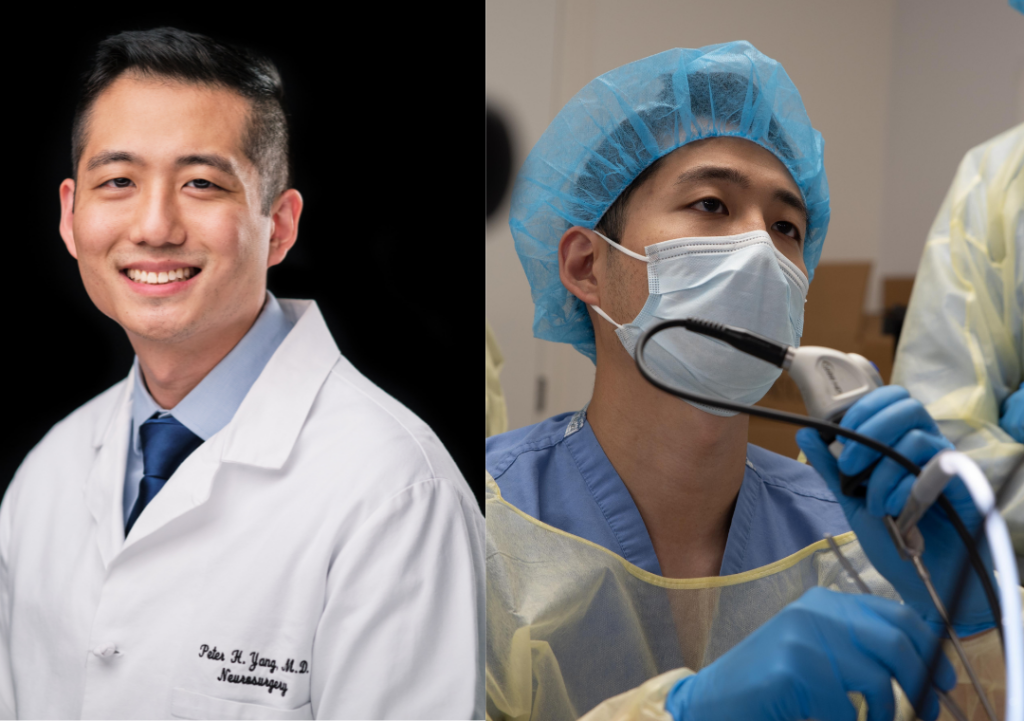It’s that time of year again. Time for our chiefs to conclude their neurosurgery residency, prepare for the next phase of their careers and reflect on their seven years at WashU.

Rupen Desai, MD
It’s been seven years, but can you remember what initially drew you to applying to the WashU residency program?
After completing a subinternship rotation at WashU, I was immediately drawn by the resident camaraderie and impressed by the high clinical volume (both elective and trauma) for an academic powerhouse. Additionally, the department has national leaders in every subspecialty, ensuring broad research opportunities and preparing graduating residents to confidently tackle diverse neurosurgical procedures.
What are your immediate professional and personal plans after graduation?
After graduation, I am excited to expand my skull base technical abilities with two 6-month fellowships. First, I will be moving to the Big Apple for a minimally invasive, endoscopic skull base fellowship with Dr. Theodore Schwartz at Weill Cornell Medicine. Then, I will move to Oklahoma City for a complex neuro-oncology and skull base fellowship with Dr. Ian Dunn at the University of Oklahoma College of Medicine. Interestingly, Dr. Ian Dunn is the twin brother of Dr. Gavin Dunn, who was my mentor throughout residency.
Do you have any departing advice for our incoming PGY1 interns?
Enjoy intern year! It’s a good transition year between the generally sheltered medical school environment and the demanding responsibilities of neurosurgery residency. It also offers free time for you to enjoy/get to know St. Louis and become friends with co-interns from different specialties.

Anna Huguenard, MD
It’s been seven years, but can you remember what initially drew you to applying to the WashU residency program?
During my interview, and when I returned for a second look, I really enjoyed meeting the residents and seeing how they interacted with each other. The people here were clearly a group I could see myself working well with.
What are your immediate professional and personal plans after graduation?
I will be staying at WashU for a Neuroendovascular fellowship for the next year. The following year, I will be moving to Phoenix to do a year-long open cerebrovascular fellowship with Dr. Michael Lawton at Barrow Neurological Institute.
Do you have any departing advice for our incoming PGY1 interns?
You sometimes learn the most from unexpected cases, patients, or consults. Always be ready to make the most of these opportunities, and after seven years you’ll have a vast amount of experience to tap into as you move towards independence.

Peter Yang, MD
It’s been seven years, but can you remember what initially drew you to applying to the WashU residency program?
Every subspecialty of neurosurgery at WashU is represented by leaders in the field – there is no weakness. When I applied, I had the strong feeling that Wash U trains “complete” neurosurgeons who are skilled at performing just about any operation from complex skull base tumor resections to spinal deformity corrections. Everybody I met was genuinely kind, scientifically curious, and very easy to talk to. I could see myself being lifelong friends with the faculty and residents.
What are your immediate professional and personal plans after graduation?
After graduation, I will be hosting my wedding banquet (long-awaited after a COVID marriage ceremony) and then traveling to Japan for a vacation before starting my pediatric neurosurgery fellowship at St. Louis Children’s Hospital.
Do you have any departing advice for our incoming PGY1 interns?
My advice would be to develop/maintain good habits in patient care from the beginning, which means to take full ownership of every task that you do from start to finish. Find role models early, whether they are faculty or other residents, and emulate their strengths. This program will train you well but remember that you also need to train yourself to be the neurosurgeon you want to be. Take the extra time to read about things you are less familiar with, ask colleagues questions, and when you are more senior, pay it forward and spend time teaching those more junior to you.